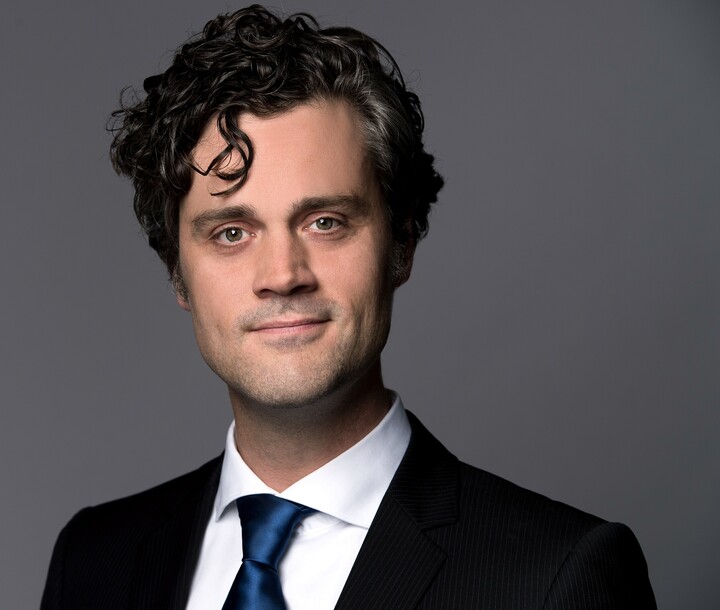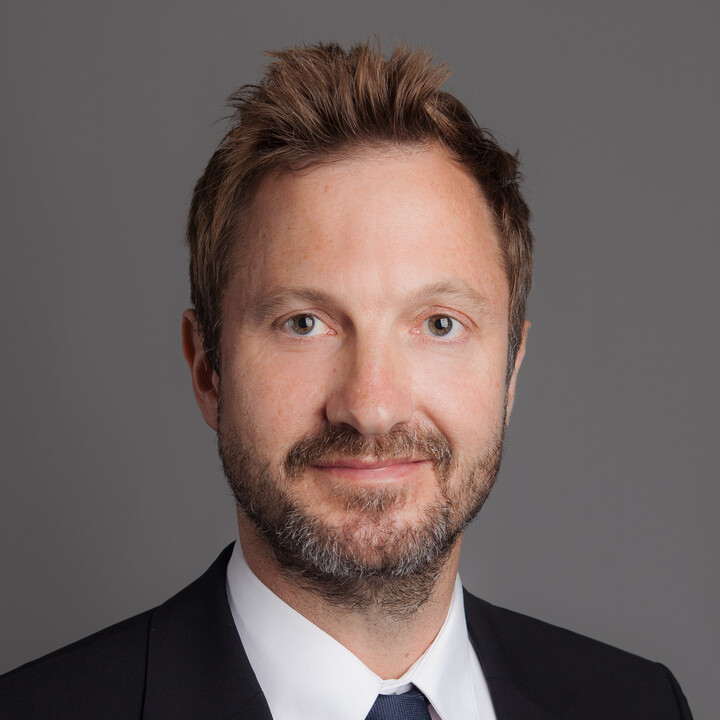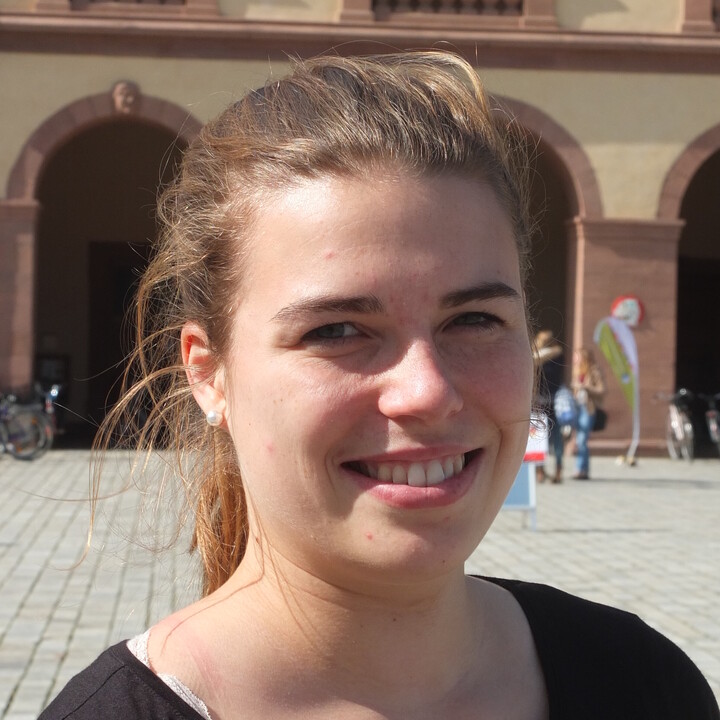Teaching
Wirtschaftspolitik (Mandatory Module B.Sc.)
Aktuelle Themen der Wirtschaftspolitik
Frühere Themen und Gäste
 Credit: Hans Peter Grüner
Credit: Hans Peter GrünerProf. Dr. HANS PETER GRÜNER
Aktuelle wirtschaftspolitische Herausforderungen
Di, 6. Dezember 2022
 Credit: DIW Berlin
Credit: DIW BerlinProf. Dr. KERSTIN BERNOTH, DIW BERLIN
Arbeitstitel: Eine Betrachtung der jüngsten Divergenz der Anleiherenditen in der WWU – besteht Korrekturbedarf von Seiten der EZB?
Di, 29. November 2022
 Credit: *
Credit: *SARA DIETZ, RECHTSANWÄLTIN BEI HENGELER MUELLER, MÜNCHEN
Selektive geldpolitische Maßnahmen: Grüne Geldpolitik und TPI (Transmission Protection Instrument)
Di, 15. November 2022
* Foto: Sara Dietz
 Credit: Hans Peter Grüner
Credit: Hans Peter GrünerProf. Dr. HANS PETER GRÜNER UND PLURALE ÖKONOMIK MANNHEIM
Volkswirtschaftslehre: Was kann man besser machen?
Fr, 12. November 2021
 Credit: Sachverständigenrat
Credit: SachverständigenratLARS FELD, ALBERT-LUDWIGS-UNIVERSITÄT FREIBURG
Welche Bedeutung soll die Schuldenbremse in Zukunft haben?
Di, 15. Juni 2021
 Credit: Hans Peter Grüner
Credit: Hans Peter GrünerProf. Dr. HANS PETER GRÜNER
Luxus, Ungleichheit und die Richtung des Fortschritts
Mo, 14. Juni 2021
 Credit: Armin Steinbach
Credit: Armin SteinbachDr. Dr. ARMIN STEINBACH, BUNDESFINANZMINISTERIUM
Politikberatung in Krisenzeiten
Di, 8. Juni 2021
 Credit: Bundesregierung/
Credit: Bundesregierung/Steffen Kugler PSt Dr. MICHAEL MEISTER, BUNDESMINISTERIUM FÜR BILDUNG UND FORSCHUNG
Neue Maßnahmen und bessere Rahmenbedingungen für mehr Innovation in Deutschland
1. Juni 2021
 Credit: Alexandra Kiel
Credit: Alexandra KielDr. ALEXANDRA KIEL, EUROPÄISCHE KOMMISSION
Der mehrjährige Finanzrahmen der EU und der Wiederaufbauplan NextGenerationEU
31. Mai 2021

KATHARINA UTERMÖHL, ALLIANZ SE
Brexit, Trump, Italien – makroökonomische Perspektiven für Europa in unruhigen Zeiten
7. MAI 2019

JOHANNES BECKER; UNIVERSITÄT MÜNSTER
Besteuerung von Google, Facebook u. Co.
30. APRIL 2019

MICHAEL THEURER, STELLVERTRETENDER VORSITZENDER DER FDP-FRAKTION IM DEUTSCHEN BUNDESTAG, VORSITZENDER DES AK II WIRTSCHAFT UND ENERGIE, ARBEIT UND SOZIALES, GESUNDHEIT, TOURISMUS
Europa: Wege aus der Krise
23. OKTOBER 2018

Prof. Dr. HANS PETER GRÜNER
Bitcoin, Crowdfunding und Big Tech Banking: Herausforderungen an die Politik
9. OKTOBER 2018
Dr. ROLF STRAUCH, CHIEF ECONOMIST, EUROPEAN STABILITY MECHANISM (ESM)
Die Rolle des ESM in der Währungsunion
18. SEPTEMBER 2018
 Credit: Privat
Credit: PrivatProf. Dr. HANS PETER GRÜNER
Kommt eine neue Italien-Krise, und wenn ja, was kann Europa jetzt noch tun?
28. MAI 2018
Dr. KATRIN ASSENMACHER, HEAD OF MONETARY POLICY STRATEGY DEVISION, EUROPEAN CENTRAL BANK
The ECB's monetary policy measures and their impact on the euro area economy
08. MAI 2018
Dr. HEINZ-WERNER RAPP, MITGLIED DES VORSTANDS, FERI AG
Behavioral Finance und Cognitive Finance – Sind Komplexitätstheorie und Gehirnforschung für das Börsengeschehen wichtiger als Ökonomie?
24. APRIL 2018
Dr. Dr. ARMIN STEINBACH
Politikberatung -- Erwartungen, Möglichkeiten und Grenzen rationaler Politik
17. APRIL 2018
Dr. CORNELIUS RIESE, FINANZVORSTAND DER DZ BANK
Die Finanzindustrie im Zeichen von Regulierung, Niedrigzins und Digitalisierung
16. MAI 2017 Credit: Privat
Credit: Privat Credit: Privat
Credit: PrivatFACHSCHAFT VWL, KRIS GERICKE und KONSTANTIN POENSGEN
Karriereperspektiven für Volkswirte – Wofür qualifiziert das VWL Studium?
9. MAI 2017 Credit: Privat
Credit: PrivatProf. Dr. HANS PETER GRÜNER
(Wie) Ist die Europäische Union noch zu retten?
25. APRIL 2017
RALPH BOLLMANN, FAZ
Lob des Imperiums. Über die Zukunft des Westens
18. OKTOBER 2016 Credit: Privat
Credit: PrivatSVEN GIEGOLD, MEMBER OF THE EUROPEAN PARLIAMENT (DIE GRÜNEN)
Wirksame europäische Regeln gegen Steuerdumping
20. SEPTEMBER 2016
Dr. WILHELM SCHMUNDT
BAIN AND COMPANY
Deutschlands Banken – Jäger des verlorenen Schatzes?
31. MAI 2016
ANNA DIAMANTOPOULOU, DIKTIO
Reforming Europe, reforming Greece: Successes, Failures and Challenges
10. MAI 2016 Credit: Privat
Credit: Privat Credit: Privat
Credit: Privat Credit: Privat
Credit: PrivatFACHSCHAFT VWL, ANNA STEINBERG, CLARA SCHÄPER, KONSTANTIN SOMMER
Das VWL-Studium in Mannheim
3. MAI 2016
MARTHE-VICTORIA LORENZ, BW-CROWD.DE, FAIRPLAID.ORG
Crowdfunding regionaler Projekte in Baden Württemberg: Erfahrungen und Ausblick
26. APRIL 2016 Credit: Privat
Credit: PrivatProf. Dr. HANS PETER GRÜNER
Bessere Regeln für Europa
19. APRIL 2016
Prof. Dr. ANDREAS PEICHL, ZEW
Besteuerung und Einkommensgleichheit in den USA, 1979-2007
30. SEPTEMBER 2015
Prof. Dr. Dr. GIACOMO CORNEO, FREIE UNIVERSITÄT BERLIN
Bessere Welt
16. SEPTEMBER 2015
DAVID RHOTERT, COMPANSTO
Crowdfunding
21. MAI 2015
Prof. Dr. FRANK SMETS, Ph.D., ECB
Monetary Policy of the ECB
7. MAI 2015
Prof. Dr. FRIEDRICH HEINEMANN, ZEW
Eine Insolvenzordnung für Europe
30. APRIL 2015 Credit: Privat
Credit: PrivatProf. Dr. HANS PETER GRÜNER
Griechenland und die Eurozone: Ein Frühlingsmärchen?
23. APRIL 2015
ANDREW BOSOMWORTH, PIMCO
Governance Structure des Euros
2. DEZEMBER 2014
Prof. Dr. FALKO FECHT, FRANKFURT SCHOOL OF FINANCE
Der unbesicherte Geldmarkt – Achillesferse oder Blinddarm des Finanzsystems?
20. NOVEMBER 2014
Dr. NICOLAUS HEINEN, DEUTSCHE BANK RESEARCH
Quo Vadis, Euroland?
6. NOVEMBER 2014 Credit: Privat
Credit: Privat Credit: Privat
Credit: Privat Credit: Privat
Credit: PrivatFACHSCHAFT VWL, SIMON SCHULTEN, LAURITS MARSHALL, EVA SCHÖNWALD
VWL in der Krise
23. OKTOBER 2014
OLAF STORBECK, THOMSON REUTERS, LONDON
Deutschland und die Eurozone: Eine Außenansicht
9. OKTOBER 2014 Credit: Privat
Credit: PrivatProf. Dr. HANS PETER GRÜNER
Fiskalpaket, Bankenunion und die EZB: Ein Ausblick
25. SEPTEMBER 2014Wirtschaftspolitisches Seminar (Elective Course B.Sc.)
Economic Policy and the Financial System (Master Course)
Institutional Economics and Economic Policy (CDSE Elective Course)
Research Seminar in Economic Policy (CDSE Elective Course)
Bachelorarbeit
Voraussetzungen für das Verfassen einer Bachelorarbeit am Lehrstuhl für Wirtschaftspolitik
Studentinnen und Studenten, die am Lehrstuhl für Wirtschaftspolitik eine Bachelorarbeit schreiben, sollten sich wenigstens im 6. Fachsemester des BSc-Studiums Volkswirtschaftslehre befinden* und die Veranstaltung Wirtschaftspolitik BSc (oder ein passender Ersatz für diese Veranstaltung) und ein Seminar am Lehrstuhl für Wirtschaftspolitik erfolgreich absolviert haben. Ein Seminar wird vom Lehrstuhl in der Regel im Früh-Sommersemester angeboten. Es behandelt Fragen der allgemeinen Wirtschaftspolitik, der Wirtschaftstheorie und der angewandten Wirtschaftsforschung.
* Studentinnen und Studenten anderer Fachrichtungen als VWL können am Lehrstuhl für Wirtschaftspolitik nur ausnahmsweise eine Bachelorarbeit schreiben. Sie sollten dann neben einem Seminar am Lehrstuhl die Veranstaltung Wirtschaftspolitik BSc erfolgreich abgeschlossen haben.
Zeitplan
- In der Regel wird im Früh-Sommersemester in der ersten Hälfte des Semesters ein Seminar angeboten (Mitte Februar bis Ende März).
- Die Seminarthemen werden Mitte Januar ausgegeben. Die Teilnehmerzahl ist beschränkt, die Auswahlkriterien werden zuvor bekanntgegeben. Die Bewerbungsfrist für das Seminar findet sich unter dem Link „Wirtschaftspolitisches Seminar“.
- Ende März findet die Vergabe von Themen für Bachelorarbeiten statt.
- Die Arbeiten können bis Ende Mai erstellt werden.
- Die Bewertung erfolgt bis Anfang August.
Ein späterer Beginn und eine spätere Abgabe sind grundsätzlich in begründeten Ausnahmefällen möglich. Die Bewertung erfolgt dann ebenfalls später. Das Thema wird dann erst zu Beginn der Arbeit ausgegeben.